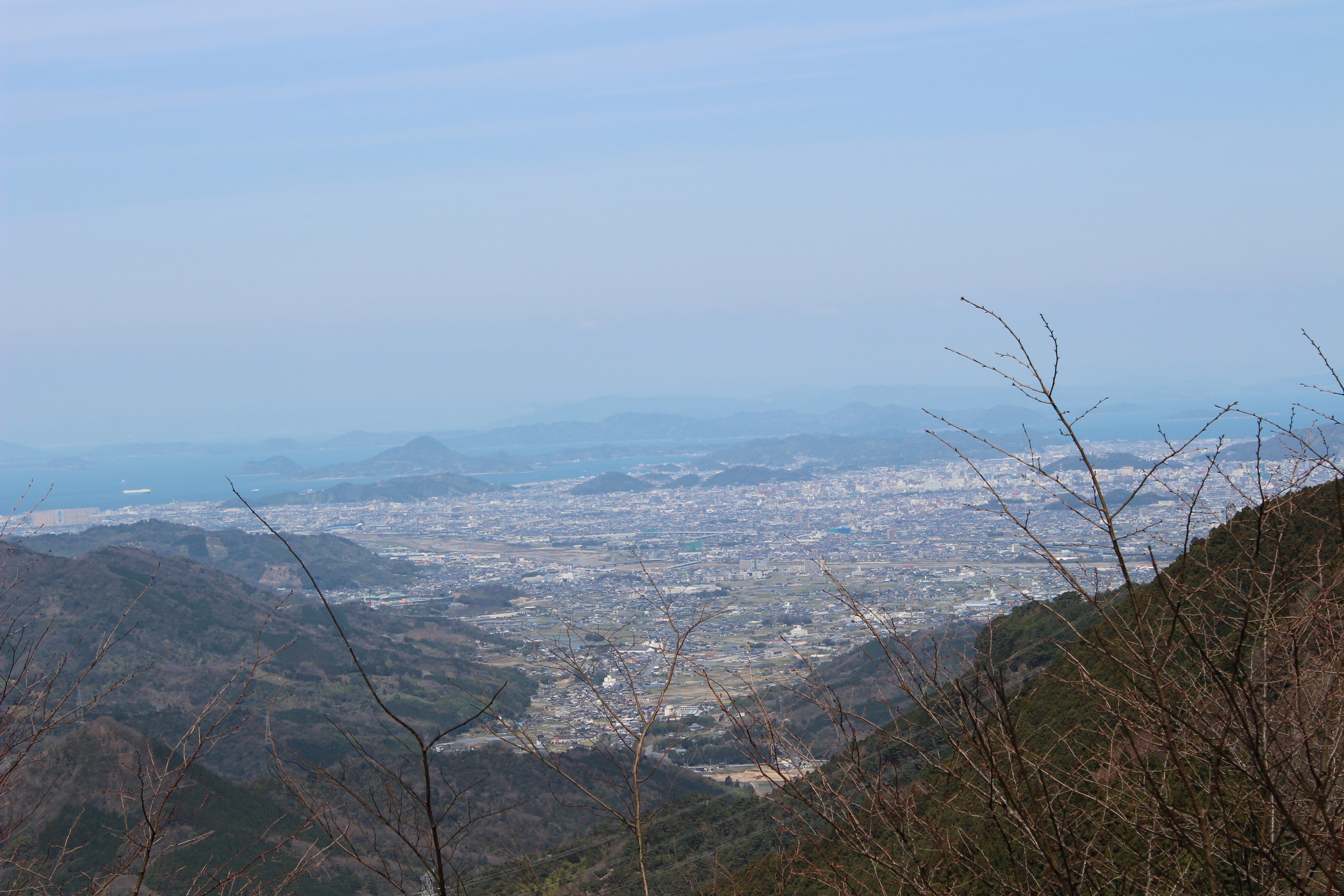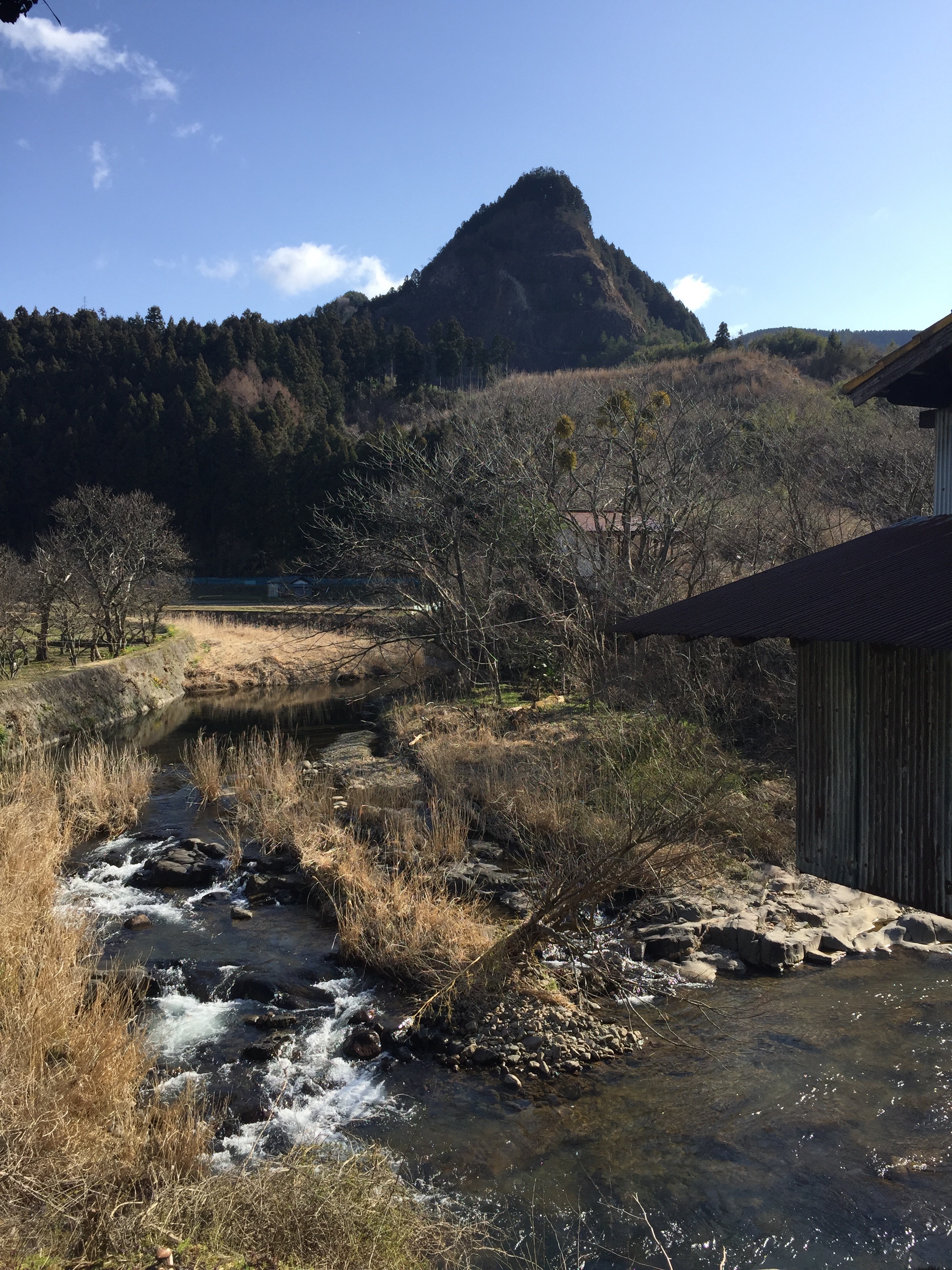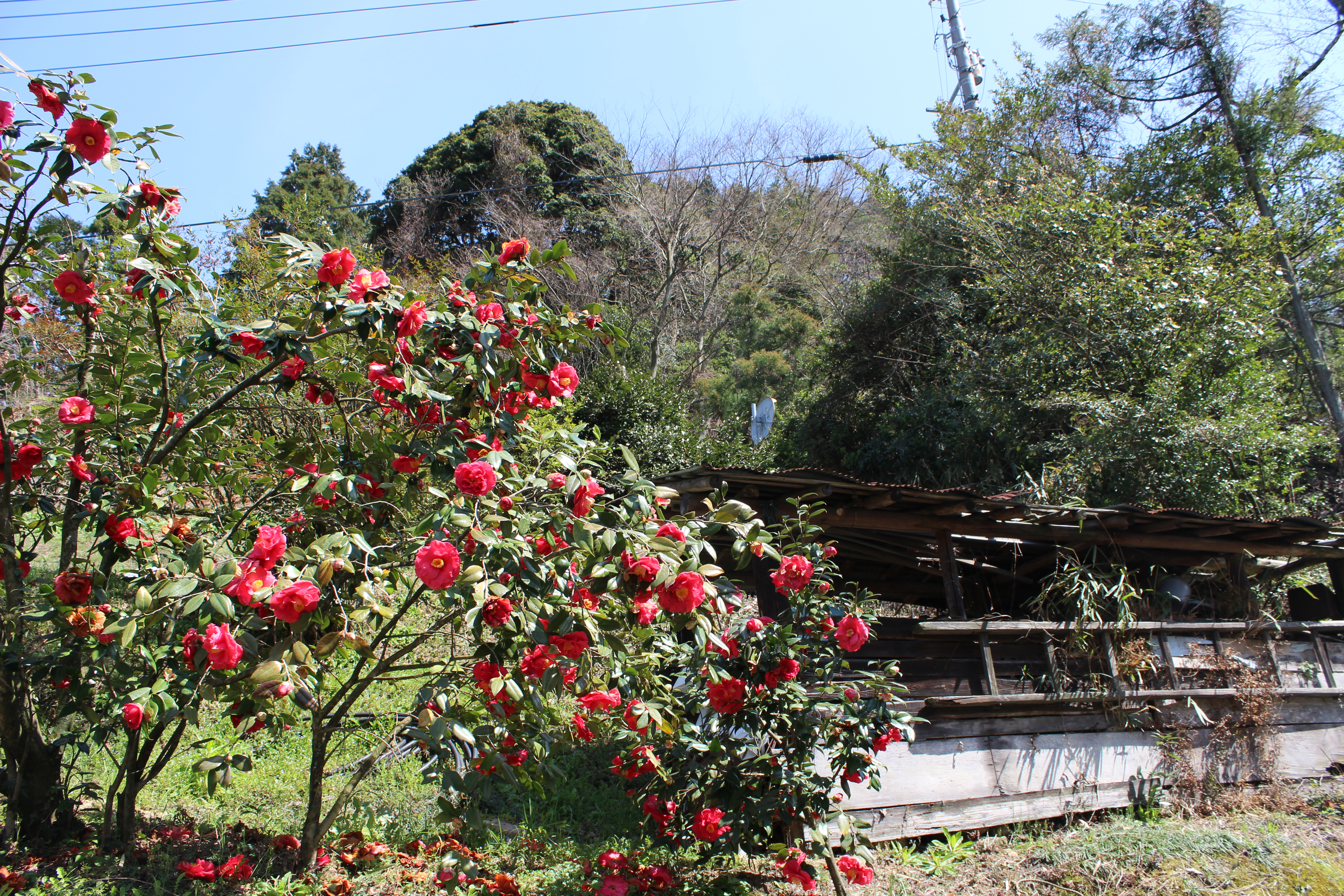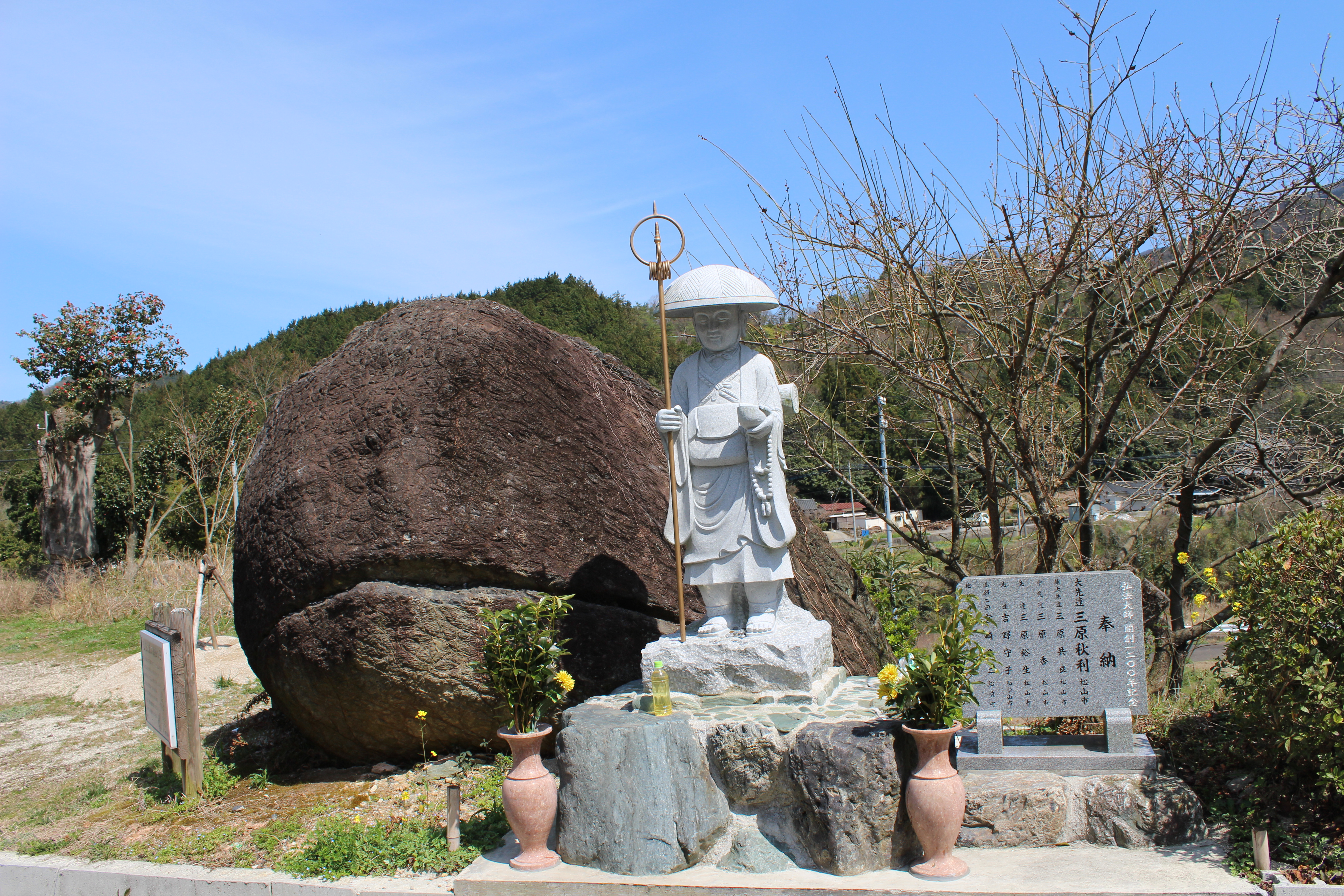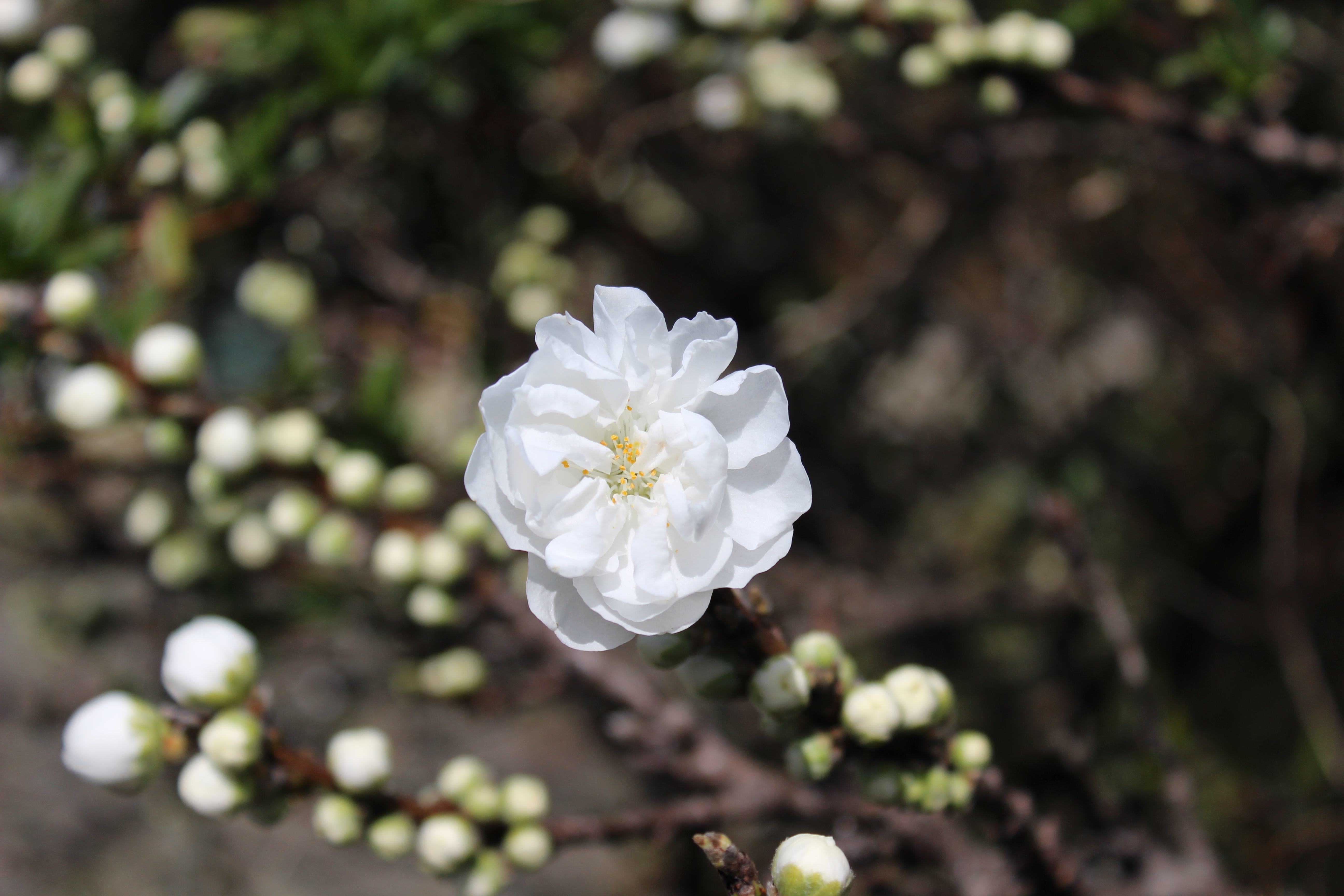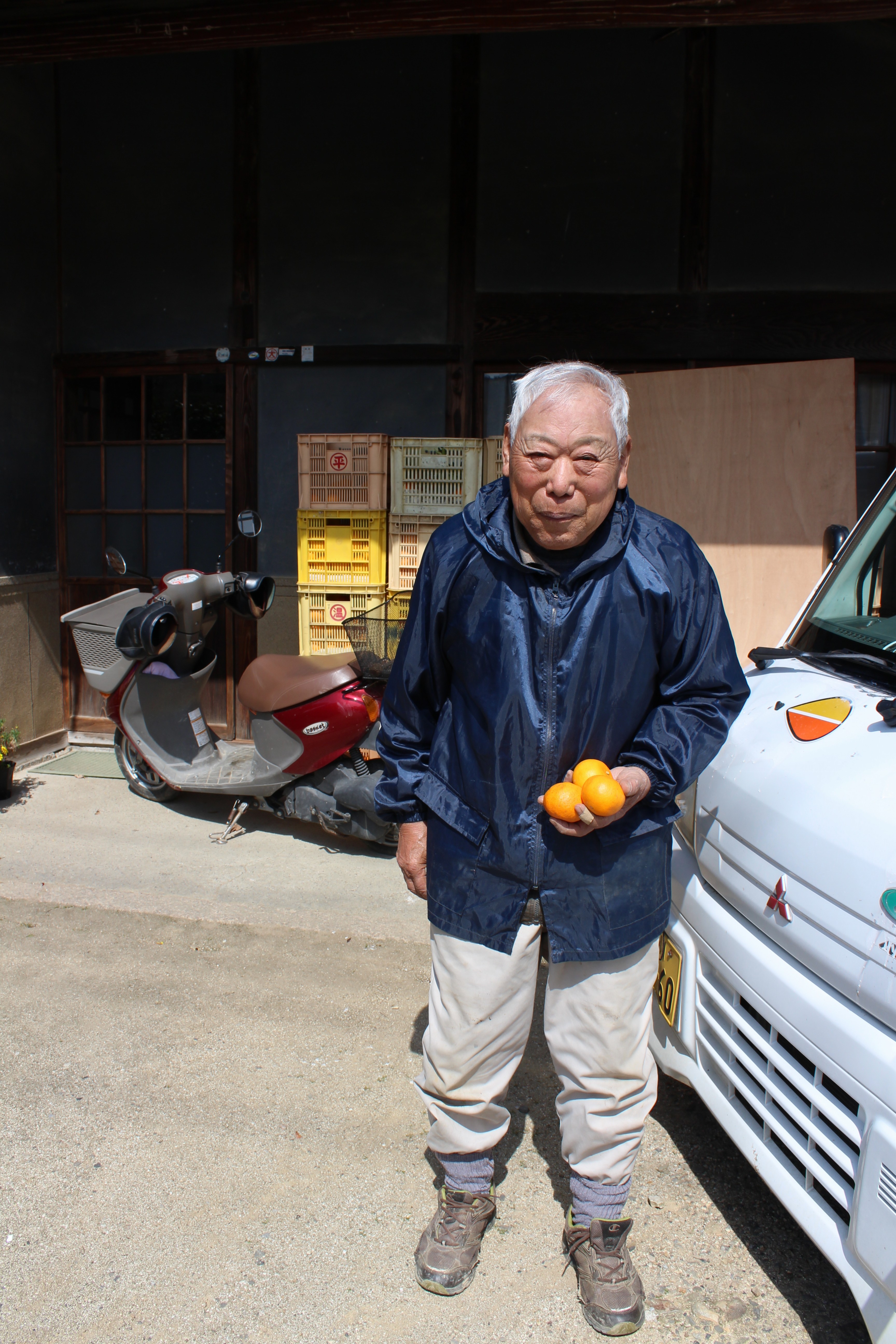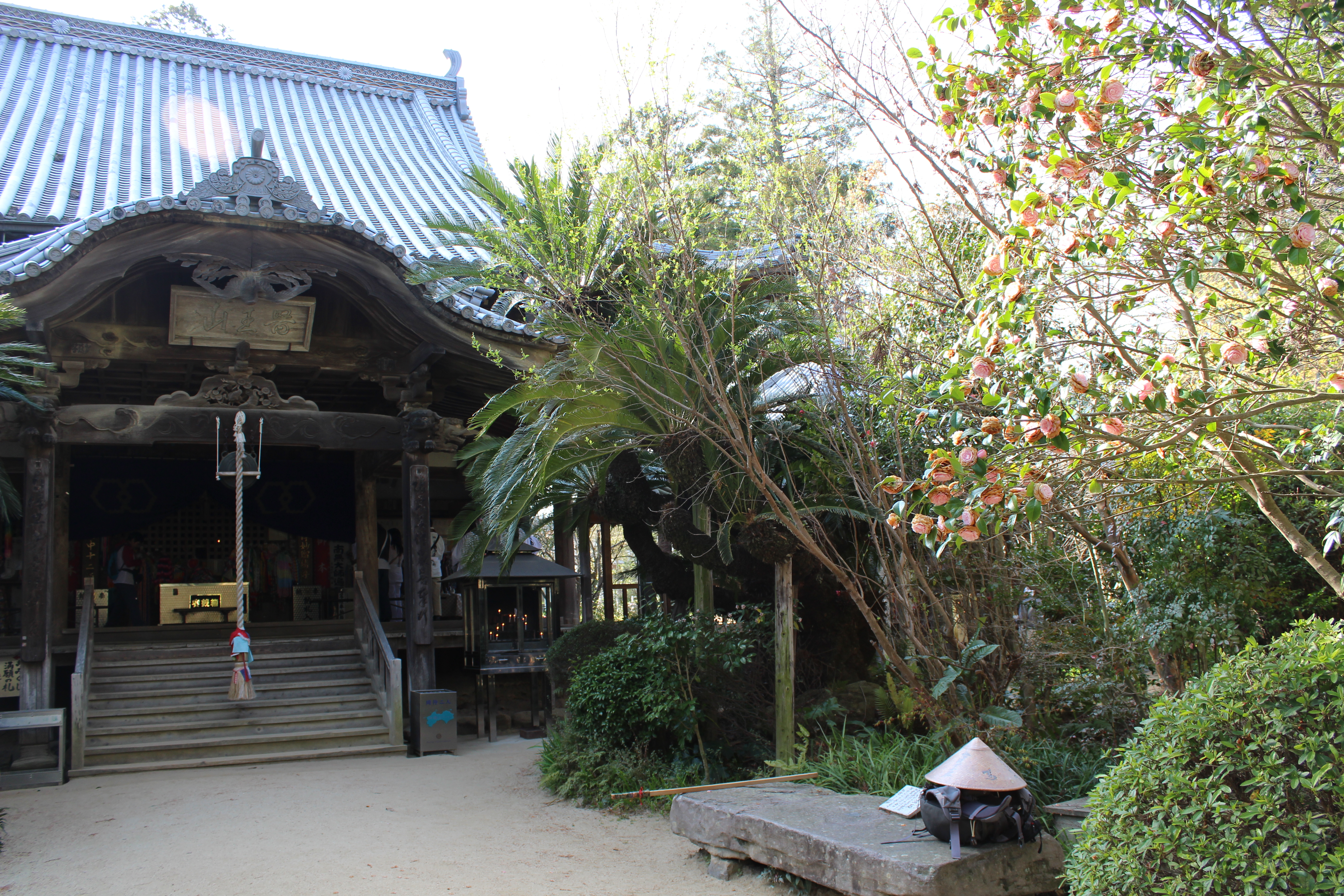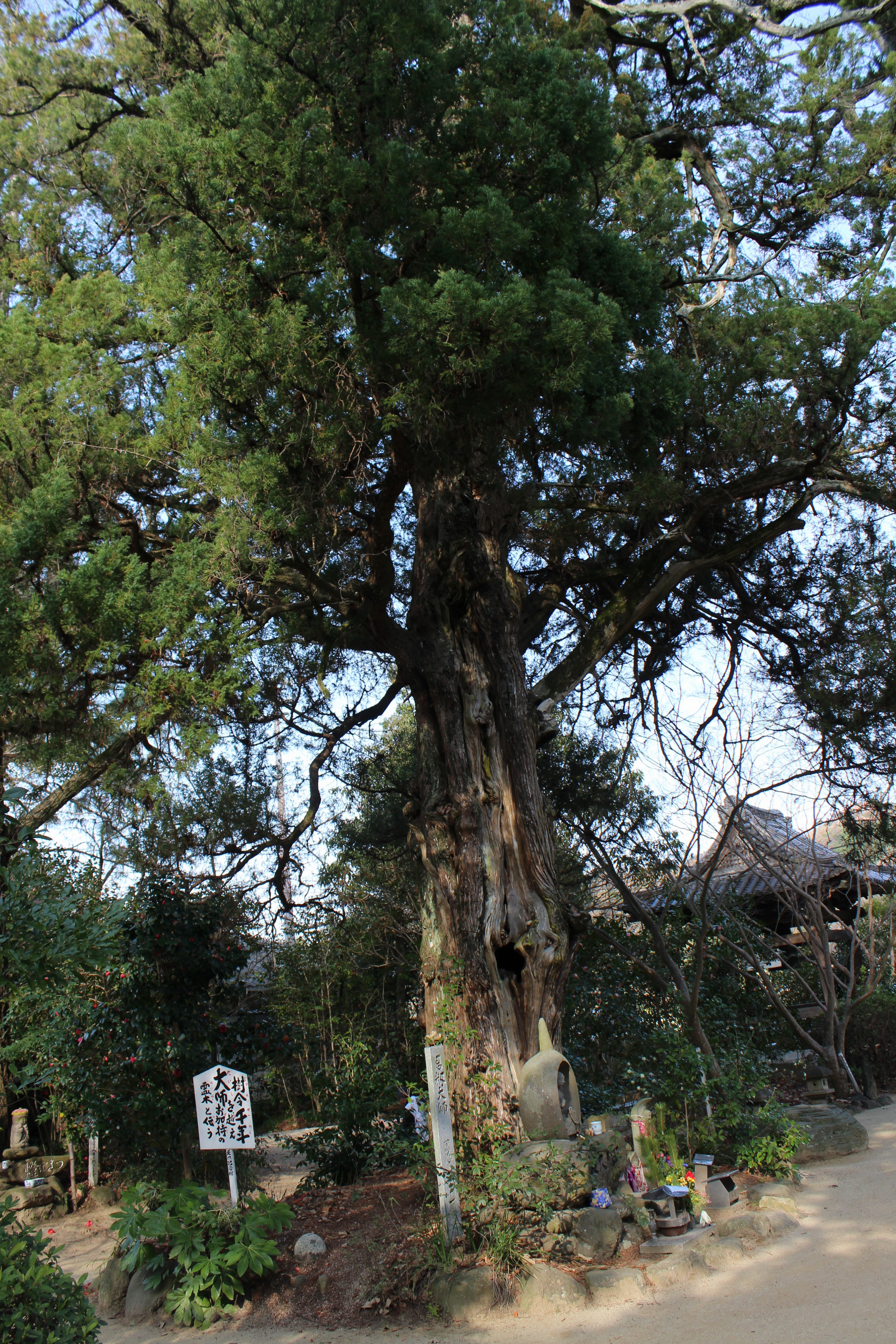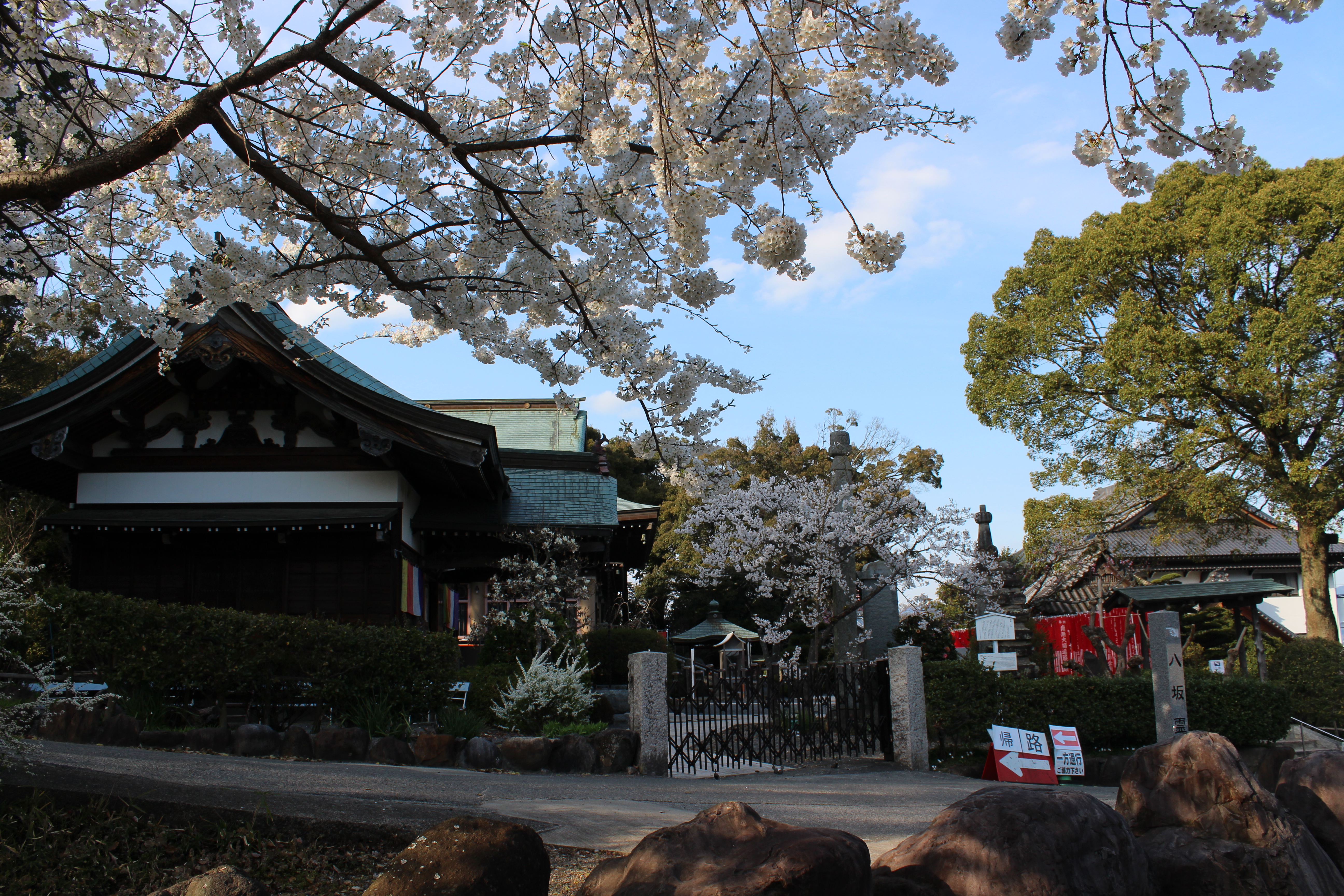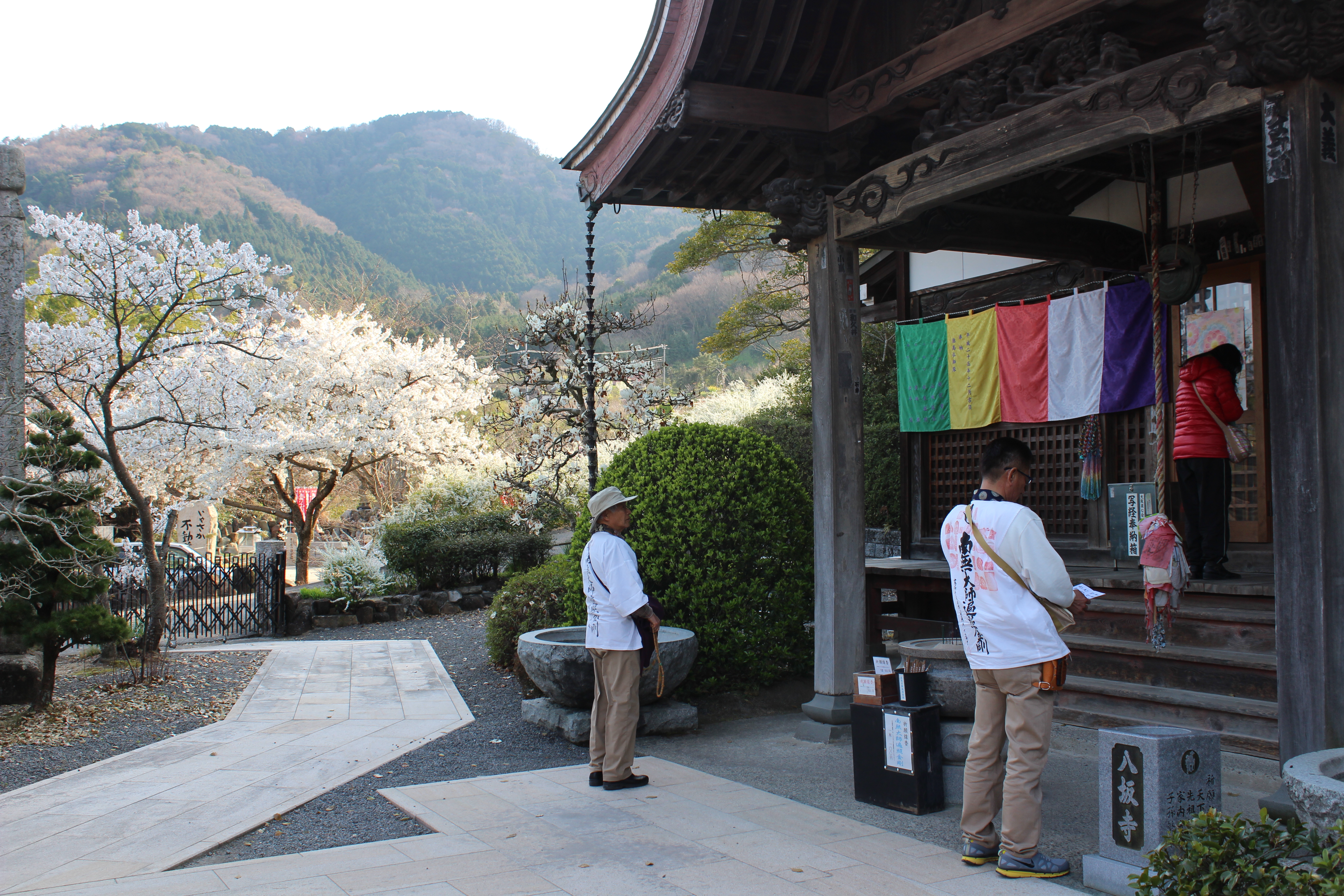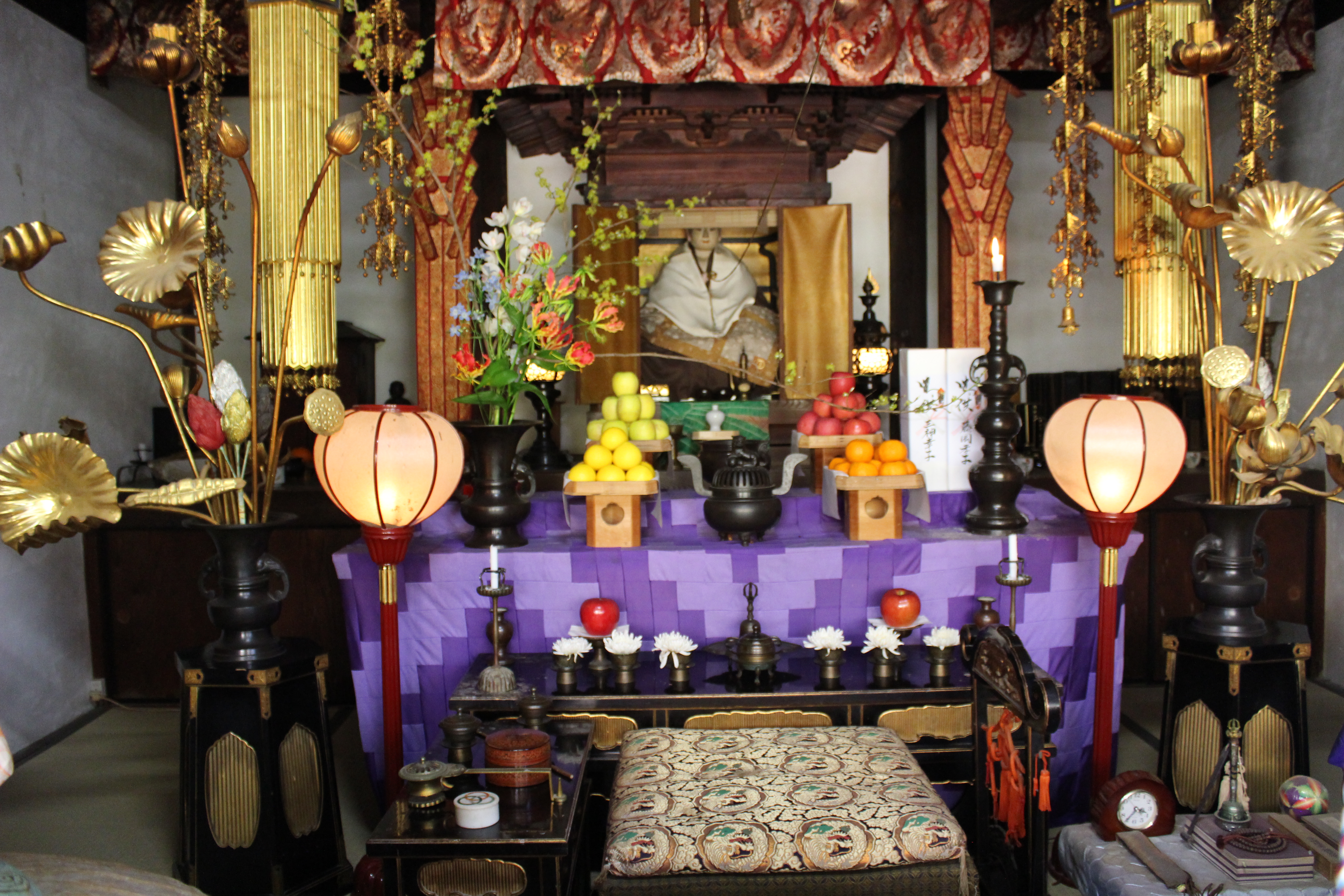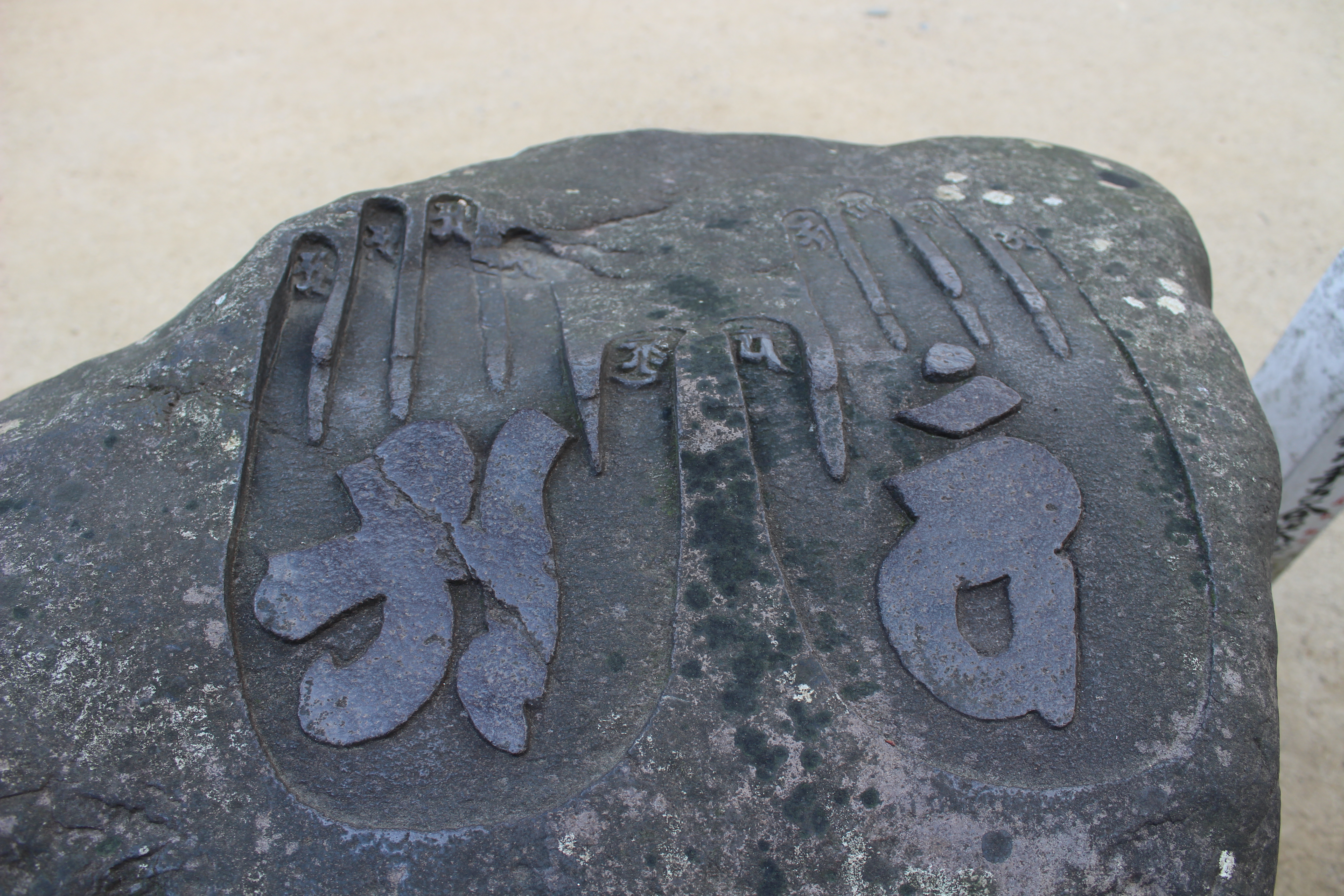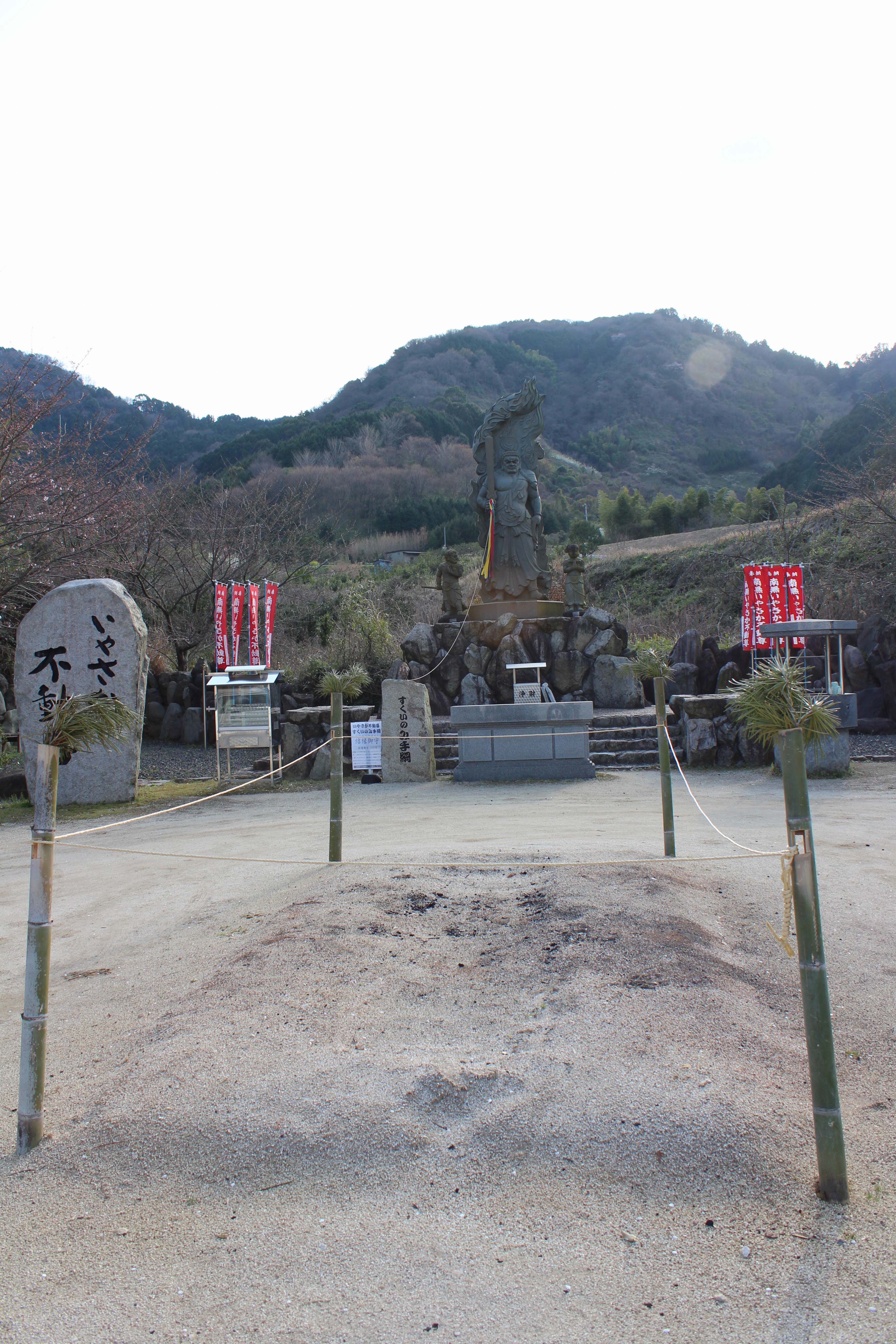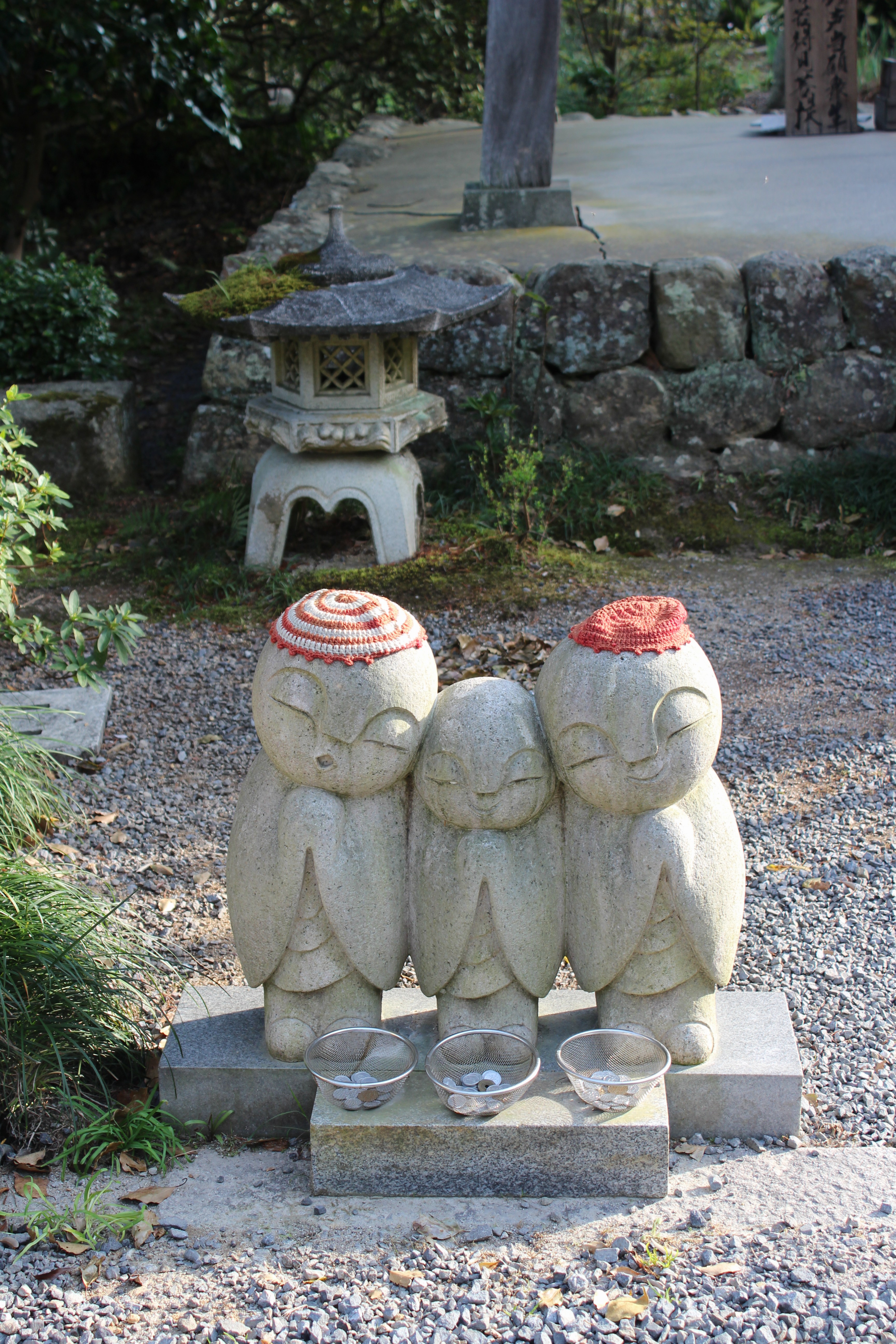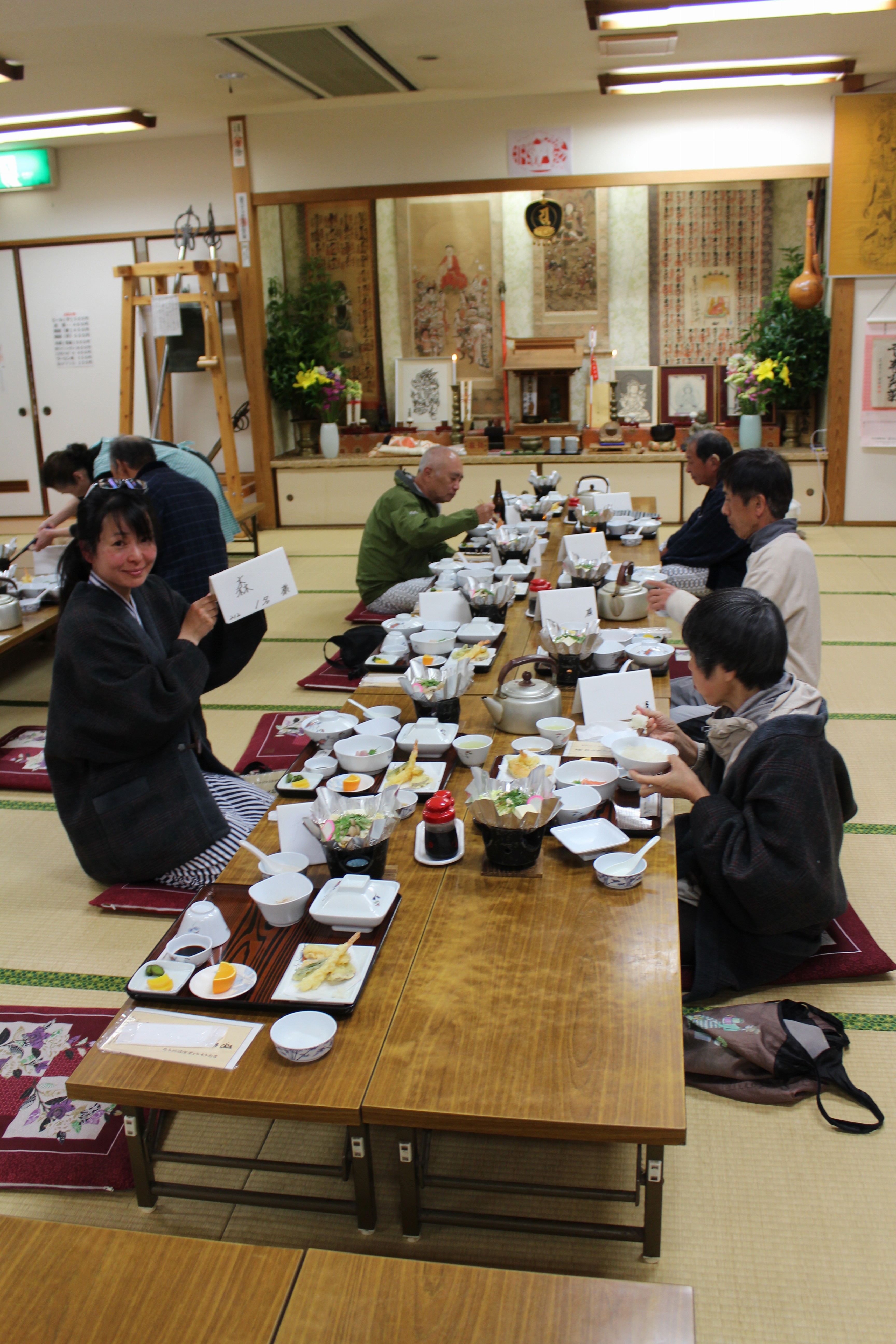Walking towards Matsuyama City (temples 46, 47, and 48)
When I approached Matsuyama City, the capital of Ehime, I walked from an altitude
of about 2 100 feet down to sea level. The vegetation changed dramatically. Spring
was just about everywhere.
View to Matsuyama City, translated as Pine Mountain City
Still up in the mountains
Kōbō Daishi with the special rock
The rock is called Kujira-ishi, Whale stone, or Amikake-ishi, Net-covered stone,
because of its shape and its net pattern on it (the legend tells that Kōbō Daish
removed this stone blocking the passage of villagers in the nets carried with his
shoulder pole).
Blooming shrub beside the special rock
This friendly Japanese man offered three oranges as osettai. I carried already six
oranges in my backpack, which people gave me on this day. He insisted I take all
three of his. Now I had nine oranges to carry. Luckily, soon afterwards I met an
Ohenro and shared the oranges with her.
Jōruriji, temple 46, has beautiful temple grounds with little paths lined by shrubs
leading to Buddhist statues and little ponds.
The Juniper in Jōruriji, known as “Ibuki”, is more than 1000 years old
Yasakaji (temple 47) is only a short distance away from Jōruriji. The temple grounds
were full of blooming cherry trees and many red flags.
Ohenros in front of the Daishido
The statue of Kōbō Daishi with offerings. The main image of worship in Yasakaji is
Amitābha, the principle Buddha of Pure Land Buddhism. The statue is only shown
once every 50 years.
In Yasakaji, besides 2 rocks with imprints of Buddha’s feet and hands, there are also
two little tunnels representing heaven and hell. Right is heaven, left is hell –
the same concept as in Christianity.
Rock with Buddha’s handprints
In this temple, a special Shingon tradition also takes place once a year –
the Goma ritual to burn away bad luck and misfortune. It is called Hiwatari-
Matsuri. With the chanting of Buddhist sutras and the blowing of the conch shell,
ascetics walk over a smoldering fire.
Place of the Goma ritual
Cute figures
I stayed overnight in the Minshuku Chōchin-ya, where I met pilgrims I knew
from before. The food was delicious.

